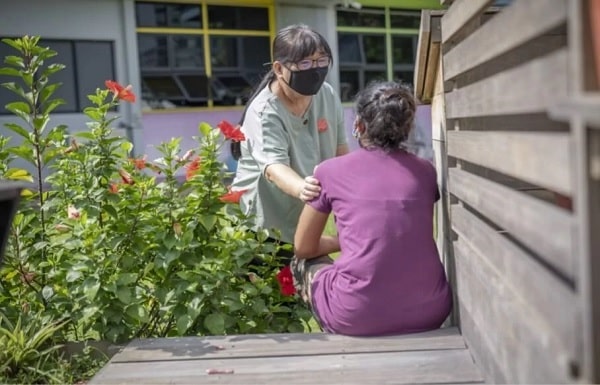Improving Lives Through English Courses for Foreign Domestic Workers

There are over 250,000 foreign domestic workers (FDWs) in Singapore, the vast majority coming from countries like Indonesia, Philippines, Myanmar, and India. While many FDWs arrive in Singapore with some basic English abilities, most seek to improve their language skills further. Being able to communicate better in English not only helps FDWs do their jobs more effectively, but also improves their personal lives and integration into Singaporean society.
Recognizing this need, the Salvation Army in Singapore offers English courses specifically for FDWs to enhance their proficiency. The Salvation Army has a long history of uplifting lives through social programs and their English courses are making a tangible difference for FDWs.
I had the chance to visit one of their beginner English classes in Katong. It was inspiring to see the dedication and enthusiasm of the FDW students. Many attend classes during their one day off per week, sacrificing their limited free time to work towards better English skills.
The classes are structured thoughtfully to suit the busy schedules of FDWs and make efficient use of their time. Lessons focus on practical conversational skills tailored to the daily needs of FDWs, such as communicating with employers, navigating public transportation, shopping at markets, and more.
The curriculum also emphasizes essential vocabulary related to employment, health, safety, finance, and general life in Singapore. Building this domain-specific language competence allows FDWs to become more confident and independent.
According to the instructors, active listening and speaking practice make up a large portion of class time. Lessons incorporate roleplays, dialogues, games, and other interactive methods to engage students. The experiential approach accelerates English acquisition and builds real-world language application.
In addition to teaching language skills, the Salvation Army’s English courses also provide a social community and support system for FDWs far from home. Students bond over shared struggles and victories. The classes become a welcoming space for FDWs to make friends, share advice for adjusting to life in Singapore, and find emotional encouragement.
Beyond just educational outcomes, these social connections empower FDWs and reduce isolation. The Salvation Army thoughtfully cultivates this sense of community to uplift FDWs holistically.
So what inspired the Salvation Army to create free English classes specifically for FDWs? As a non-profit driven by faith and humanitarian goals, they recognized both the struggles faced by FDWs in Singapore and how better English skills could improve FDWs’ livelihoods and welfare.
Access to language learning resources is limited for FDWs due to financial constraints. By offering free classes taught by qualified volunteers, the Salvation Army removes barriers and provides emancipating English education to those most in need.
The Salvation Army’s English courses for FDWs exemplify their ethos of “doing the most good” for marginalized communities. Since starting the program in 2011, over 3,000 FDWs have benefited from these classes. Many graduates have reported tangible improvements including getting better jobs, easier community integration, and closer relationships with employers.
As Singapore continues to rely on FDWs as an essential workforce, the Salvation Army is empowering them and touching lives through practical English training. Such initiatives not only help FDWs, but also contribute to a more inclusive and equitable Singaporean society.
If you want to help uplift and empower FDWs, consider volunteering with or donating to the Salvation Army’s English courses. Your contribution can positively impact the lives of FDWs seeking to better integrate and thrive in Singapore. Support initiatives like English courses for foreign domestic workers – be part of transforming lives through language.




